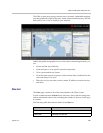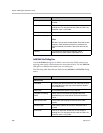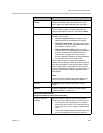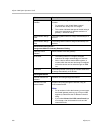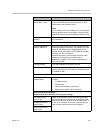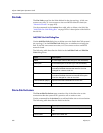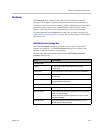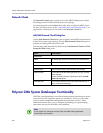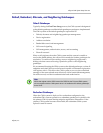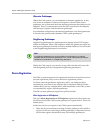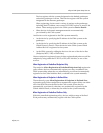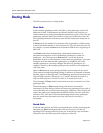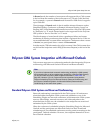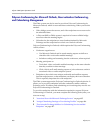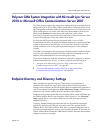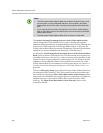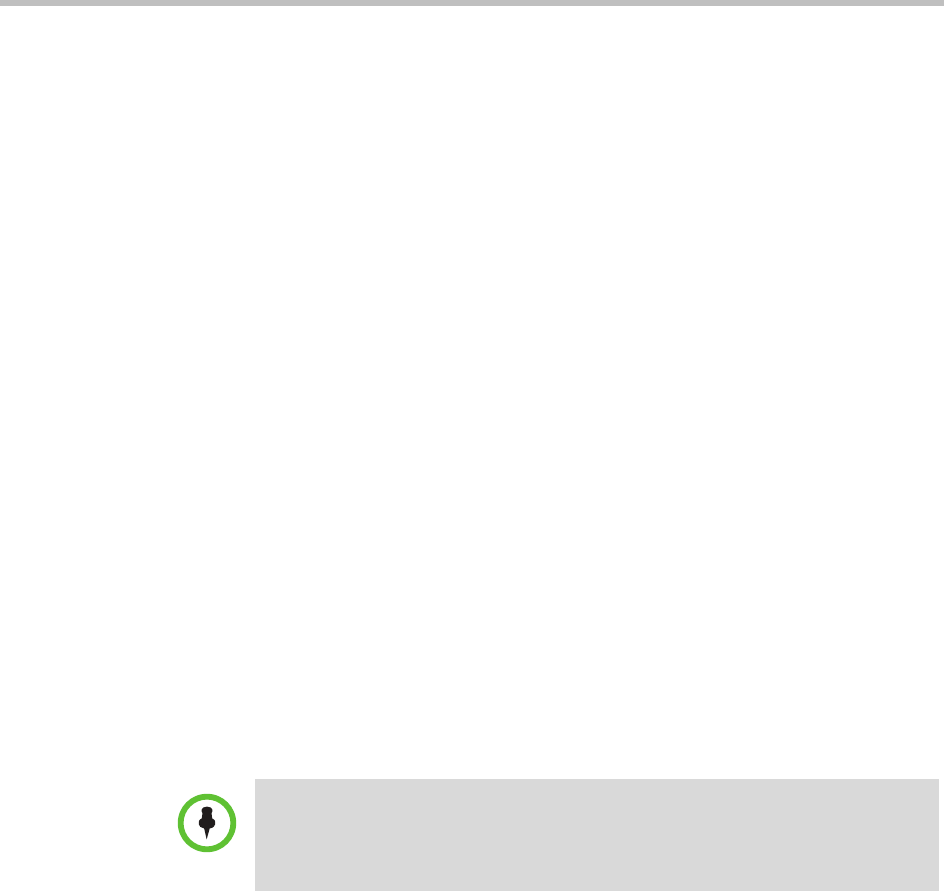
Polycom CMA System Setup Overview
Polycom, Inc. 395
Default, Redundant, Alternate, and Neighboring Gatekeepers
Default Gatekeeper
Typically during the First Time Setup process, the CMA system is designated
as the default gatekeeper and the default gatekeeper settings are implemented.
The CMA system as the default gatekeeper responsible for:
• Default, alternate and neighboring gatekeeper management
• Device registration
• Address resolution
• Bandwidth control and management
• Call control signaling
• Call management, authorization, access, and accounting
• Firewall traversal
When a call originates from the CMA system and the system is unable to
resolve the dialed address, the call can be forwarded to another gatekeeper for
resolution. To enable call forwarding, create a neighboring region and a
dialing rule that routes calls using a particular prefix to the neighboring
gatekeeper.
We recommend keeping the CMA system as the default gatekeeper, so that all
endpoints and other devices on the network capable of automatic registration
will register with it. This allows the CMA system to serve as the centralized
manager of the network and more effectively aid in bandwidth management,
firewall traversal, and device authentication and authorization.
Redundant Gatekeeper
When the CMA system is deployed in a redundant configuration, the
redundant CMA system operates as a redundant gatekeeper in parallel with
the primary CMA system sharing endpoint registration information. If the
primary CMA system becomes unavailable, the redundant CMA system
replaces it until it returns.
Note
MCUs that register with a GRQ instead of a RRQ like the Polycom RMX system,
will only register with the CMA system when it is enabled as the default gatekeeper
for the zone.



